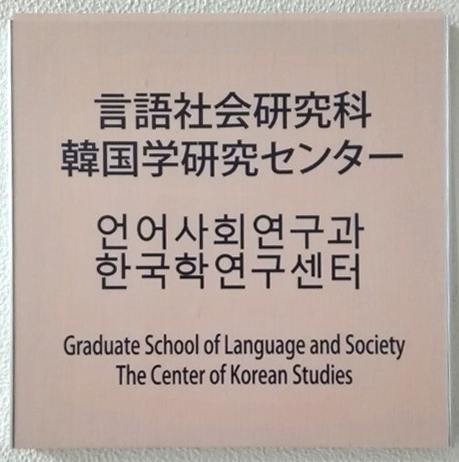Overseas Research Exchange
The Center of Korean Studies: "Experience, Memory, and Co-existence"

On December 1st, 2016, the "Hitotsubashi University Graduate School of Language and Society, The Center for Korean Studies" was launched as a center for graduate studies. It was established as the foundational organization for the promotion of the research project "Korean Studies in Search of Possibilities for Historical Reconciliation: The Glocal Spectra of Experience, Memories, and Co-existence" commissioned by the Academy of Korean Studies and accepted by GENSHA. (The commissioned research itself was completed in 2022.)
Under the research theme, "Korean Studies in Search of Possibilities for Historical Reconciliation: The Glocal Spectra of Experience, Memories, and Co-existence," we’ve promoted new Korean Studies that are based on interdisciplinary, deterritorial, and comparative methods having the humanities and social sciences at its core. The aim is to make intellectual contributions to the formation of the Asian community through wide-ranging research on regions in East Asia, with a focus on the Korean Peninsula.
"Experience, Memory, and Co-existence" are our continuous keywords. The Center of Korean Studies hopes to shed light on the past and present of Japan, South Korea, and East Asia, from a variety of angles, including historical "experiences," the politics of "memory," and the possibility of multilingual and multicultural "co-existence"; it aims to position Korean Studies within the larger framework of East Asian Studies, to make its importance widely known, and to contribute to the further enhancement and enrichment of East Asian Studies. As of February 2023, in partnership with 20 research institutes in South Korea and 4 in China, the center has been developing international research activities by holding various symposia and study meetings. We strives to realize its goals, while pursuing a high standard of academic research, unconstrained by any one particular style and developing an array of activities.
The supervisor of the center is Professor Hirobumi SAKAI. The center's office and Reference Room are located on the 2nd floor of the Faculty Building 3 in the East Campus (room 209).





